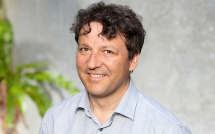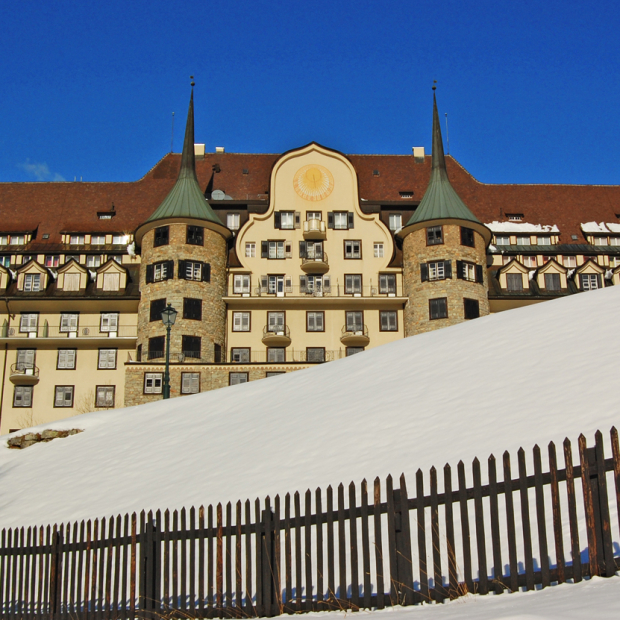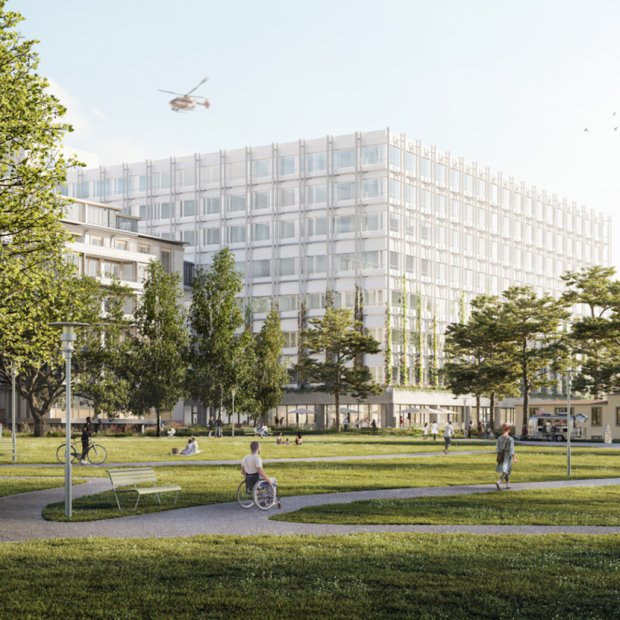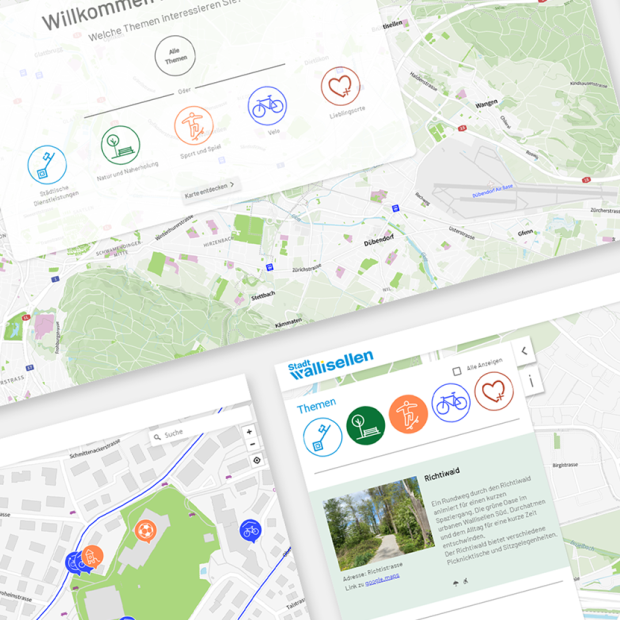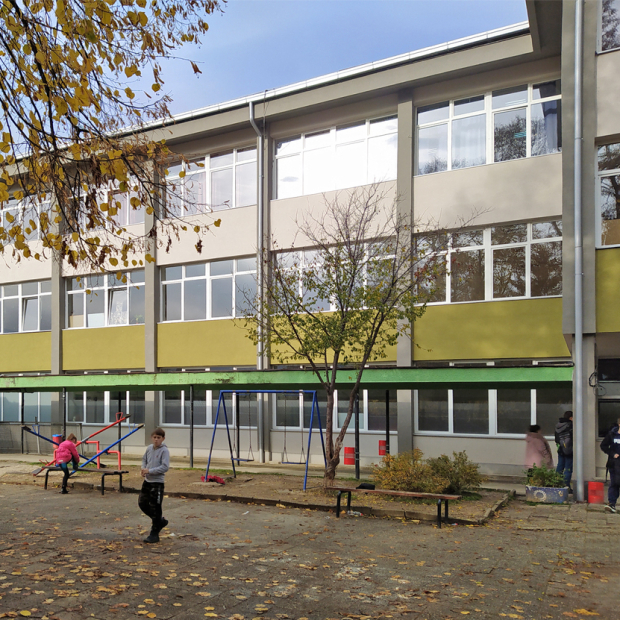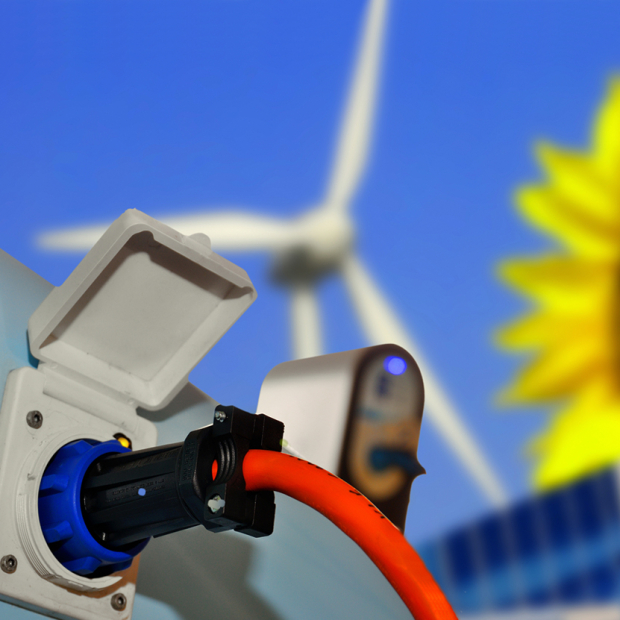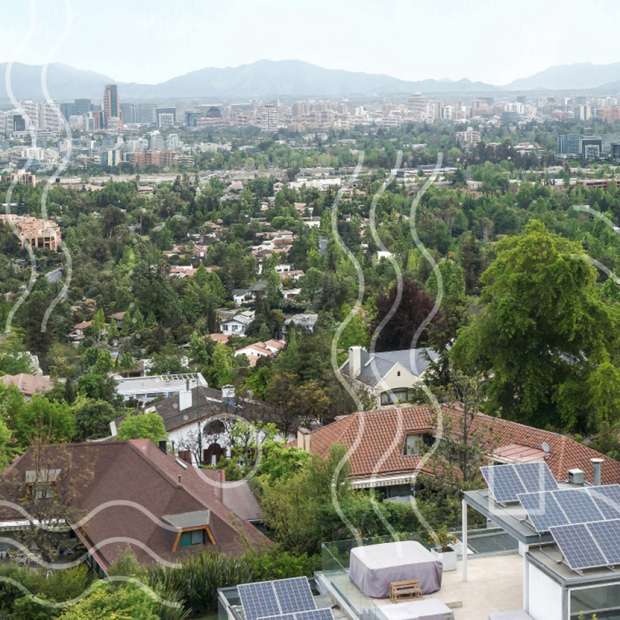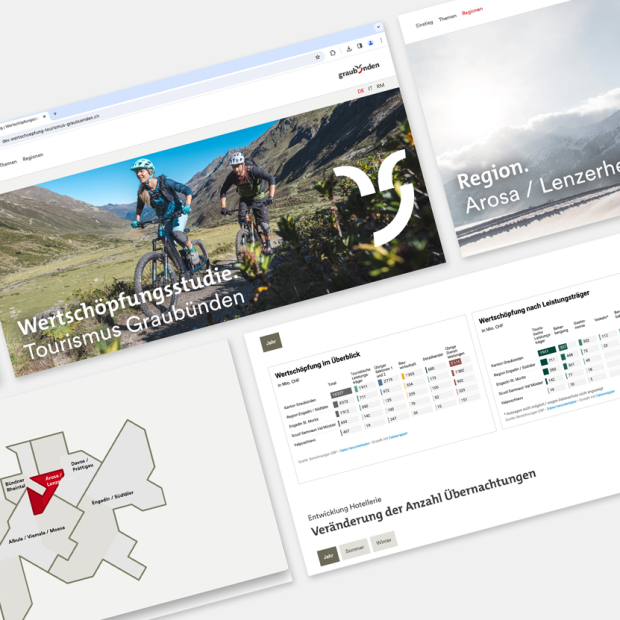
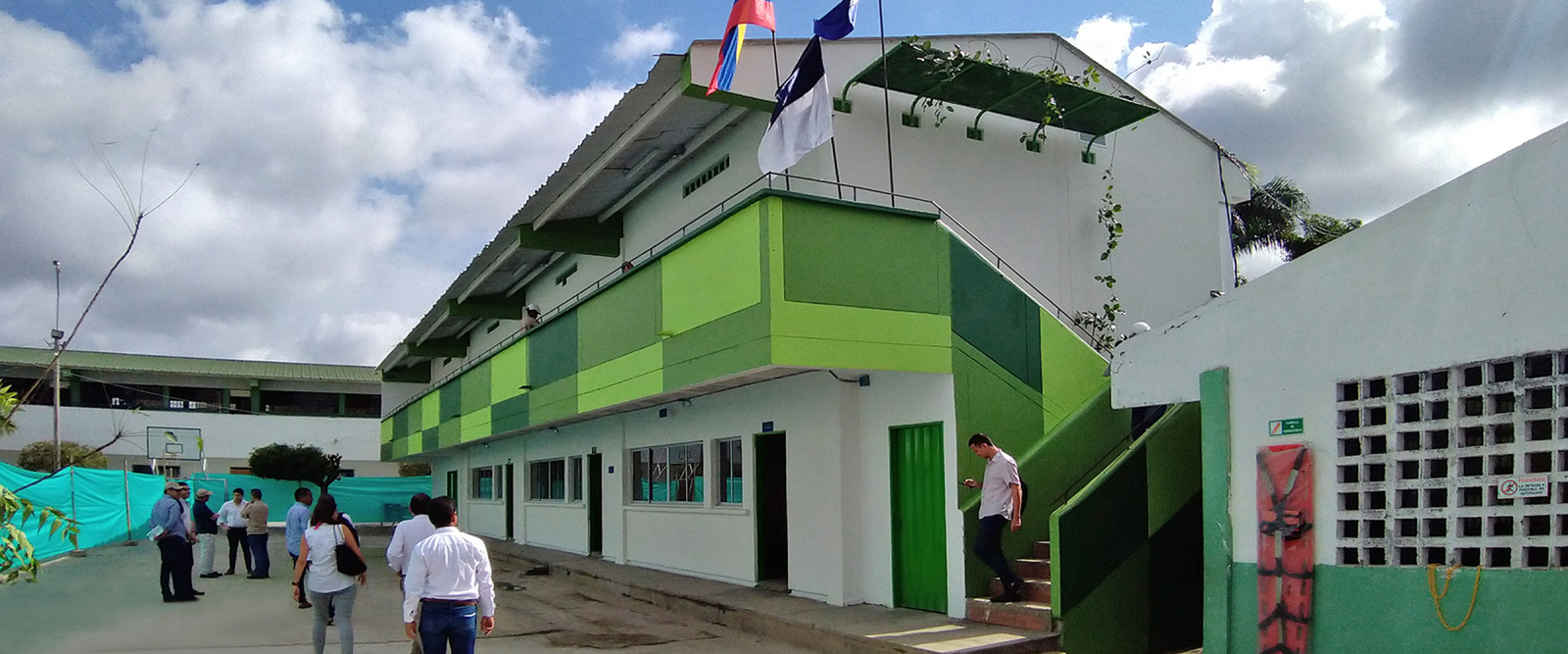
School retrofitting in the Caribbean
The main goal of this project was to improve the indoor air quality on the classrooms using energy efficiency measures and renewable energy. The classrooms had very bad conditions, reaching average temperatures of 95ºF and CO2 concentrations as high as 4000ppm, even in air-conditioned rooms. These conditions made it difficult for the students to keep focused.
This project lowered the indoor temperature to 80ºF, while keeping the electrical bill low, through a combination of envelope measures and use of photovoltaic systems.
Establishing an energy-efficiency standard in Colombia
The Colombian government promoted the implementation of the Swiss “Energy City” standard as a means of promoting the development of renewable sources of energy, improving general energy efficiency and introducing more sustainable forms of transportation. As the Implementation Agency of the Energy City Initiative in Colombia, we planned and supervised the retrofitting of the Juan XXIII School in Monteria, a city located in Colombia’s Caribbean region.
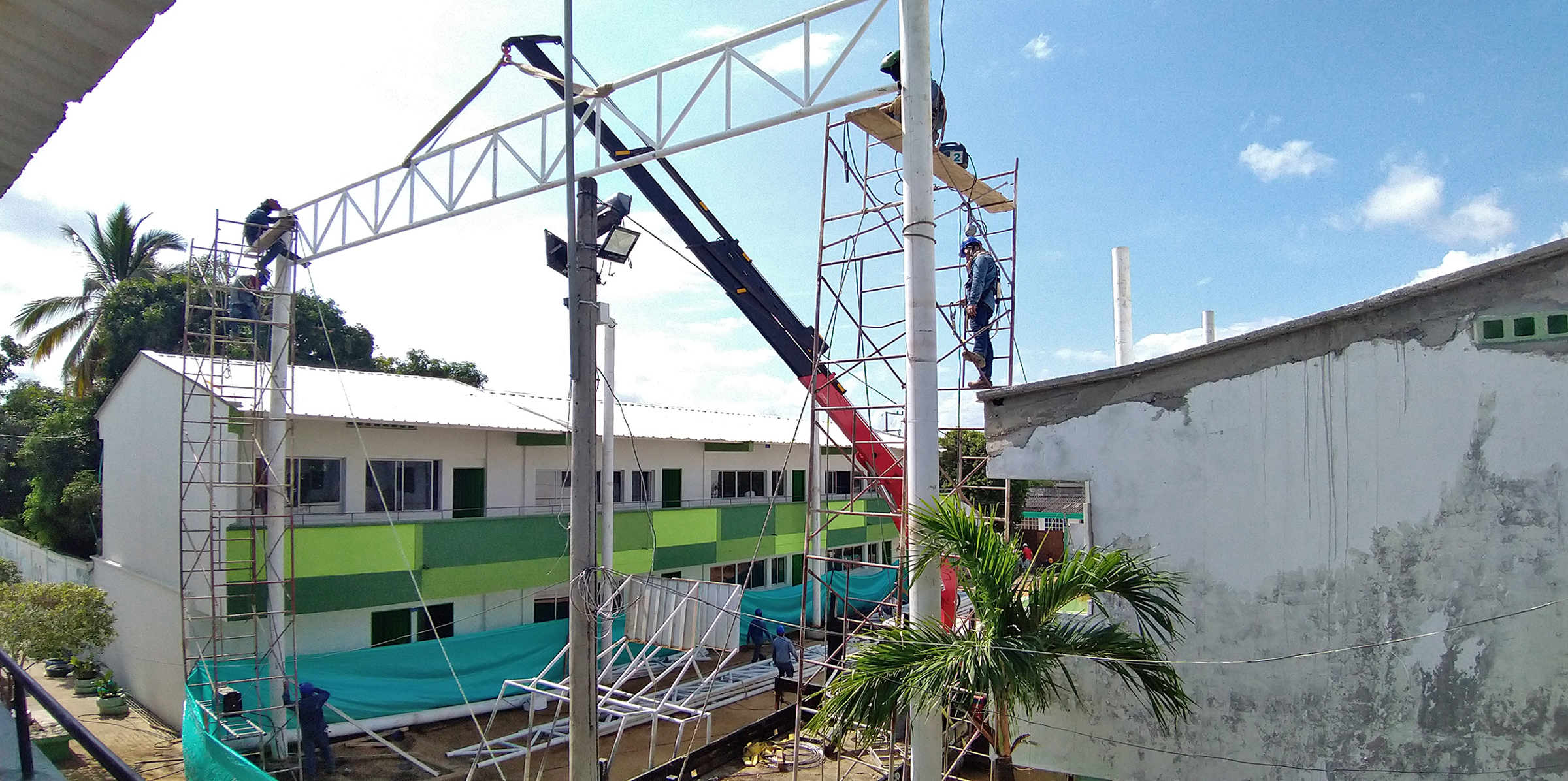
High classroom temperatures undermine learning process
Classroom temperatures at schools on the Caribbean Coast often increase during the day to more than 95°F, while the relative humidity fluctuates between 60 and 80 percent. Typically, air conditioning without air renovation is installed on classrooms, and windows and doors are closed to keep cool air inside. This situation has an important downside: lack of fresh air and high concentrations of CO2.
Indoor comfort in hot and humid climate zones is extraordinarily important for schools. Excessively warm conditions make it more difficult for students to concentrate, which can undermine important learning processes. Many schools have inefficient energy systems. For instance, while they may have air conditioning, other systems such as building insulation, ventilation and lighting are often substandard. In top of this, usually schools have problems with grid stability and high energy costs.
Providing comprehensive planning and realization services
EBP oversaw the retrofitting project, from the start of the planning phase to the end of the execution phase. We developed the energy concept, drafted the tender documents, selected local building contractors and managed the on-site realization. The following technical measures were carried out:
- Installation of a sun-shading system, roof and wall insulation, and new, high-quality windows
- Installation of an efficient, centrally-controlled ventilation and air-conditioning system
- Installation of a 40 kWp photovoltaic system on-grid.
- Renovation of the building’s electrical system and replacement of the lighting with an LED-based system
- Greening of the outdoor space for natural cooling
The important role of knowledge transfer
During the course of this model project, we were able to gain much experience in the planning and realization of energy-efficient schools in the Caribbean. We have compiled this experience in a handbook and video to facilitate its future application. All of the work we performed was carried out in close consultation with local representatives of the Colombian government and local Colombian contractors. We were able to apply knowledge we’ve acquired and experience we’ve gained over the years in the context of our renovation projects in Chile and Switzerland.
